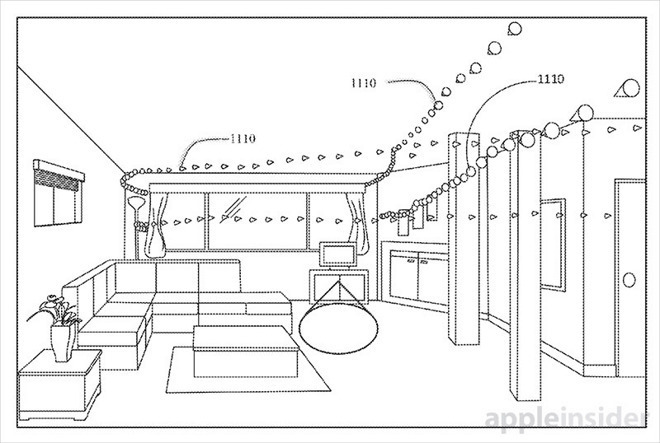As Google, Microsoft and Facebook forge ahead with second- and third-generation augmented reality (AR) and virtual reality (VR) systems, consumers waiting for an Apple branded AR product will have to stand by for at least one or two more years, according to well-connected KGI analyst Ming-Chi Kuo.
Ming-Chi Kuo in a note to investors obtained by AppleInsider notes AR fits in well with Apple's aptitude for delivering innovative users experiences through unique human-machine interfaces. The company's current success is in large part thanks to iPhone, a device that introduced multitouch screens to the masses.
Just as technology introduced with iPod paved the way for iPhone, so might iPhone provide the necessary building blocks for a full-blown AR solution, Kuo says. The analyst fails to provide detail on a particular embodiment, but Android smartphones are already being used to power VR headsets. Apple might test the waters with a system akin to the hit iOS game Pokmon Go, which taps into iPhone's camera and display to provide users with a seamless AR experience.
On a fundamental level, augmented reality can be described as a layer of digital information overlaid onto the physical world. Modern systems like Microsoft's HoloLens use a mix of cameras, sensors, transparent displays and specialized software a to immerse users in a digitally augmented world. These advanced systems have massive computational and power requirements and are therefore bulky, hardly ideal for a user experience company like Apple.
When the technology matures, however, Kuo sees Apple integrating AR to redefine key product lines, perhaps leapfrogging competitors by three to five years. For example, augmented user interfaces could drastically change the way users interact with Apple Watch and Apple TV, eliminating obstacles like small screens and clunky controls.
At the same time, Apple might leverage AR tech to break into other fields, Kuo says. One such area of interest is automotive technology, or more specifically autonomous driving systems.
Apple was widely rumored to be working on a self-driving car, dubbed "Project Titan," since March of 2015, but recent reports claim the company has abandoned those plans. Instead of a full-fledged car, Apple is scaling back its ambitious project to focus on underlying technology.
Of note, a report last week said Apple is testing an AR heads-up display with Siri integration as part of a pivot to self-driving software and supporting hardware.
It's no secret that Apple has an interested in AR. The topic has become a go-to talking point for CEO Tim Cook, who takes what seems to be every PR opportunity to trumpet a bullish stance on the burgeoning tech.
Cook first broached the subject during an earnings conference call in July, saying, "We are high on AR for the long run, we think there's great things for customers and a great commercial opportunity. So we're investing."
He reiterated the sentiment in August. And again in September before doubling down with two AR name drops (1, 2) last month.
Beyond Cook's devoutly declared interest in AR, evidence shows Apple is slowly building out an AR team of sorts through strategic hires and segment purchases. The company is buying up small AR/VR firms, including motion capture specialist Faceshift, machine learning and computer vision startup Perceptio, German AR firm Metaio and former Google collaborator Flyby Media.
Development of supporting tech is also being pursued in house, evidenced by a growing portfolio of AR/VR patents for transparent displays, iPhone-powered virtual reality systems, advanced computer vision tech and other related tech.
Still, Apple has not tipped its hand on concrete plans for the burgeoning AR industry. Cook's bluster, the hires, acquisitions, patents and rumor are all small parts of a larger, at this point nebulous, whole.
And so the rumor mill churns. With a dearth of meaningful insight into Apple's plans, it is unknown when and in what shape the company's AR product will materialize. Kuo's low-end estimate of one to two years is a relatively long incubation period for the fast-moving tech industry. Considering Apple is already "heavily invested" in the tech, a segment debut could result in an iPhone accessory, a self-driving car, or even an AR-infused contact lens. Or nothing at all.
 Mikey Campbell
Mikey Campbell







-m.jpg)






 Marko Zivkovic
Marko Zivkovic
 Mike Wuerthele
Mike Wuerthele
 Christine McKee
Christine McKee
 Amber Neely
Amber Neely
 Sponsored Content
Sponsored Content
 Wesley Hilliard
Wesley Hilliard

 William Gallagher
William Gallagher









20 Comments
Hope Kuo in his private life isn't talking so much...
It's ridiculous that this guy gets so much air time from sites like AI.
Does AI get paid to constantly post garbage from this clown, who can't seem to shut up when it comes to Apple and yet is wrong more often than not?